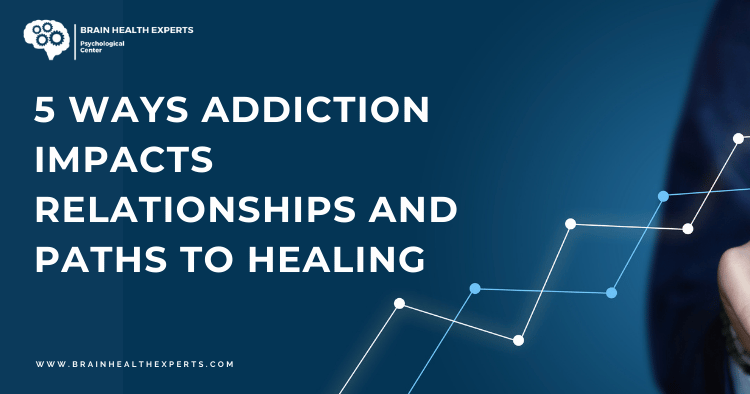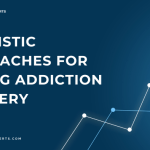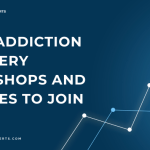Table of Contents
- Understanding Addiction and Its Effects
- Emotional Distress and Communication Breakdown
- Trust Issues and Betrayal
- Financial Strain and Resource Mismanagement
- Paths to Healing: Navigating Recovery Together
Understanding Addiction and Its Effects
Addiction is a complex condition that affects not only the individual but also everyone around them. It can take many forms, including substance use disorders, behavioral addictions, and more. According to the National Institute on Drug Abuse (NIDA), addiction is a chronic disease that alters the brain’s structure and function, leading to compulsive behavior and an inability to control impulses.
Relationships are often the first casualties of addiction. Partners, family members, and friends may struggle with the emotional and practical implications of a loved one’s addiction. Understanding the multifaceted impact of addiction is essential for both the person struggling and their loved ones.
FAQs:
- What are some common types of addiction?
Common types include alcohol, drugs (prescription and illicit), gambling, and even digital or social media addiction. - Is addiction a disease?
Yes, addiction is classified as a chronic disease that affects the brain’s reward system and can lead to severe behavioral changes.
Also Look For
For insights into how positive thinking can transform relationships affected by addiction, check out 10 Ways Positive Thinking Transforms Your Relationships.
Emotional Distress and Communication Breakdown
Addiction can lead to significant emotional turmoil in relationships. Partners often experience feelings of anger, helplessness, and sadness. Emotional distress can stem from witnessing a loved one’s struggles and the fear of losing them. This distress often manifests as poor communication, which can further alienate those involved.
The emotional landscape can become rocky, filled with misunderstandings and unresolved feelings.
The Impact of Poor Communication
- Increased Conflict: Misunderstandings can lead to arguments, creating a cycle of negativity.
- Isolation: Partners may withdraw from each other, feeling unsupported and misunderstood.
- Resentment: Lingering feelings of betrayal can lead to bitterness and resentment.
Tips for Improving Communication
- Set Boundaries: Clearly define what behaviors are acceptable and what are not.
- Practice Active Listening: Make an effort to listen without interrupting. Validate feelings before responding.
- Seek Professional Help: Couples therapy can provide a safe space for both partners to express their feelings and work through issues.
Effective communication is a lifeline in navigating the turbulent waters of addiction.
For more techniques on reducing stress and improving communication, refer to 10 Proven Stress Management Techniques for Daily Relief.
Trust Issues and Betrayal
Trust is a cornerstone of any healthy relationship, and addiction can severely compromise this foundation. Lies, deceit, and broken promises often accompany addiction, leading to feelings of betrayal that can be challenging to overcome.
Rebuilding trust is not just about apologies; it requires consistent actions and open dialogue.
Ways Trust is Affected
- Dishonesty: The individual may lie about their usage, leading to a breakdown of trust.
- Neglect: Prioritizing addiction over relationships can make loved ones feel unvalued.
- Emotional Withdrawal: The addicted individual may become emotionally unavailable, further eroding trust.
Rebuilding Trust
- Open Dialogue: Honest conversations about feelings and experiences can help rebuild trust over time.
- Transparency: The addicted individual should be open about their recovery process, including setbacks.
- Consistency: Trust is rebuilt through consistent behavior over time; reliability is crucial.
For insights on emotional intelligence that can help rebuild trust, check out Understanding Emotional Intelligence: Key Insights & Benefits.
Financial Strain and Resource Mismanagement
Addiction often leads to significant financial implications for both the individual and their loved ones. Spending money on substances or behaviors can create strain, jeopardizing household finances and leading to conflicts.
Financial strain can create a ripple effect, impacting not just the immediate family but also extended relationships.
Financial Consequences of Addiction
- Increased Spending: Addictive behaviors can drain finances quickly, leading to debt.
- Loss of Employment: Addiction can affect job performance, resulting in job loss or decreased income.
- Impact on Family Resources: Families may have to cut back on essentials or savings to accommodate the addiction’s financial toll.
Strategies for Managing Financial Strain
- Create a Budget: Work together to devise a budget that prioritizes necessities and addresses debts.
- Seek Financial Counseling: A financial advisor can help find solutions to manage debts and prioritize spending.
- Explore Support Groups: Many communities offer resources for families affected by addiction, including financial assistance programs.
Paths to Healing: Navigating Recovery Together
Recovery from addiction is a journey that involves both the individual and their loved ones. Healing is possible, but it often requires a committed effort from both parties.
Recovery is not a race; it’s a gradual process that requires patience and understanding from everyone involved.
Steps to Encourage Healing
- Educate Yourself: Understand the nature of addiction, its effects, and the recovery process. Resources like Substance Abuse and Mental Health Services Administration (SAMHSA) can be invaluable.
- Join Support Groups: Organizations like Al-Anon or Nar-Anon provide support for families and friends of those struggling with addiction.
- Be Patient: Recovery is a long process that may include setbacks. Patience and understanding are essential.
- Encourage Professional Help: Professional treatment, including therapy and support groups, can significantly improve the chances of recovery.
- Focus on Self-Care: Both partners should prioritize their well-being. Engage in activities that promote physical, emotional, and mental health.
For further insights into personal growth during recovery, refer to 10 Ways Positive Thinking Fuels Personal Growth Journey.
In conclusion, while addiction poses significant challenges to relationships, understanding its impact and committing to healing can lead to stronger, healthier bonds. Open communication, rebuilding trust, managing finances, and seeking support are vital components of this journey. Remember, recovery is not just about the individual; it’s about rebuilding and healing together.
Additional Resources
By fostering empathy and support, both partners can navigate the complexities of addiction and emerge stronger together.





